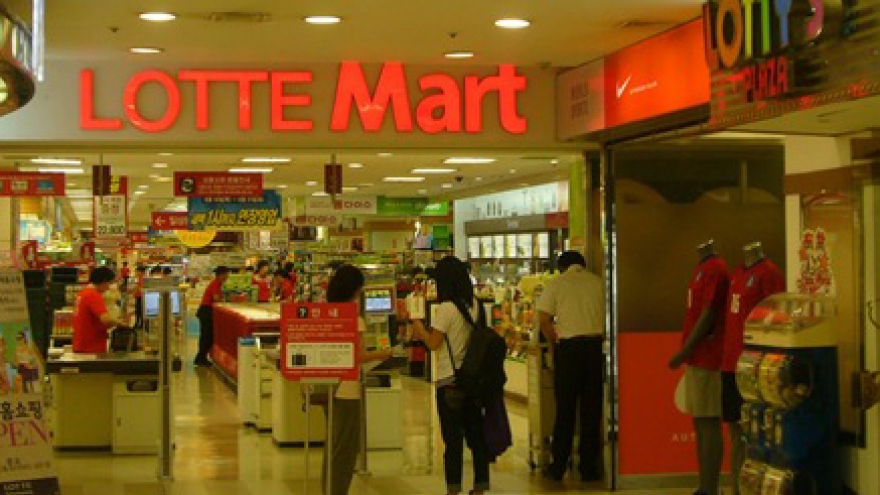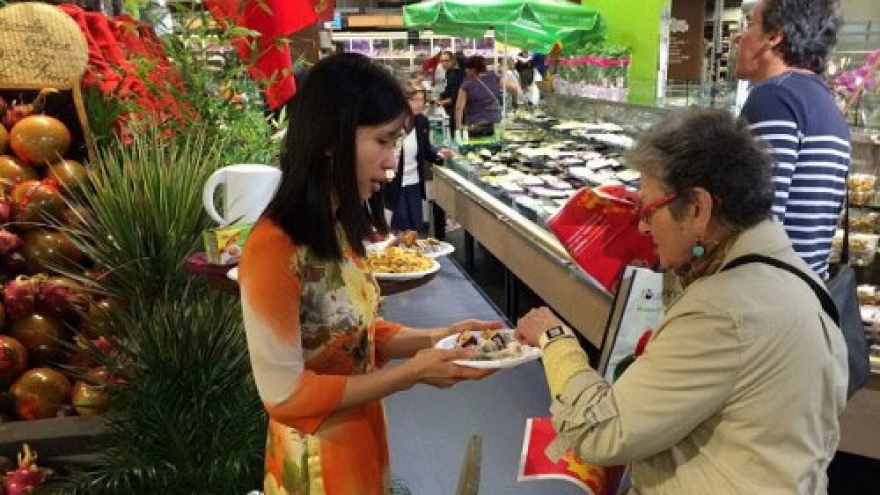Tough road ahead as HCM City considers clearing makeshift markets
You may not be unfamiliar with hundreds of makeshift markets in operation across Ho Chi Minh City, where vendors make use of any available street space to sell a wide variety of produce.
The municipal health department has been making plans to consign such markets to history, with a detailed proposal already submitted to the city’s administration.
The proposed measures include setting up an agency in charge of ensuring food safety in the city and creating a campaign to remove the so-called ‘temporary markets’, though authorities are aware that it will not be easy.
Most vendors who sell goods on the street say they know they are occupying the pavements or public space, but they have no other choice and will defy all regulations to earn a living.
 |
| A chicken vendor is seen at a makeshift market in Ho Chi Minh City. |
Despite the pushback, no market exists without shoppers, and even with questionable hygiene and safety standards, makeshift markets are never short of customers, as people find it more convenient to drop by a vendor sitting on the street to buy the food needed for their dinner.
This saves buyers a lot of time as there is no need to park their motorbike, or stand in line at the supermarket.
Tran Thi Thao, 54, has been selling pork at a makeshift market inside an alley in Binh Thanh District for ten years, as she cannot afford a booth inside an official market.
She pays VND2 million (US$90) a month to lease a ‘premise,’ spanning a few square meters in front of a motorbike repair shop, and puts the meat on a plastic cloth.
 |
“If all makeshift markets are cleared, I will not know what to do to earn a living,” she said.
Vendors on makeshift market streets have to look for buyers and at the same time prepare themselves to run when local police officers come.
They put all their stuff into bags and run into the nearest alley for shelter, but soon return and put everything back on the plastic cloths once officers are out of sight.
“No one would sell on the street if they could afford a booth inside official markets,” Nguyen Minh Hoang, a vegetable vendor, said.
Several consumers told Tuoi Tre (Youth) newspaper that they usually drop by makeshift markets to buy food because it is “fast and convenient,” while prices are much cheaper than in supermarkets.
“I have never been to a supermarket,” Van, a frequent buyer from a makeshift market in Go Vap District said.
“The food is fresher and cheaper here, and you do not have to park your bike.”
 |
Unable to clear
Makeshift markets are also known as temporary, jerry-built and pavement markets, and are not recognized by the law but preferred by market-goers, according to an official from the city’s trade department.
The temporary markets serve busy people who do not have time to shop at traditional markets or supermarkets, he said.
“But these facilities are not under the management of regulatory agencies and do not pay taxes, which affects the city’s revenue,” he added.
“They also pose pollution and food safety threats.”
It has until now been impossible to crack down on makeshift markets.
“We do run campaigns to remove those vendors and fine them, but we cannot do this on a daily basis,” Le Thanh Tai, chairman of Ward 13 in Go Vap District, said.
Tai said it is an even more difficult issue to handle given 80% of the vendors are migrants.


